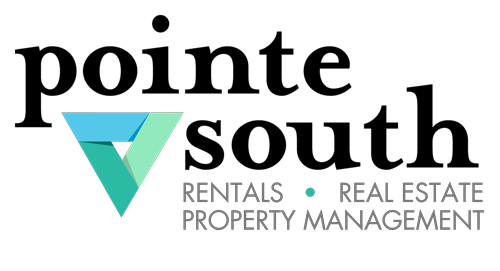June is here, and it’s not just the start of summer—it’s National Homeownership Month! This annual celebration highlights the significance of owning a home and its profound impact on individuals, families, and communities. As we dive into Homeownership Month, let’s explore its importance, the myriad ways owning a home enriches lives, and whether now is the right time for you to become a homeowner.
Why Homeownership Matters
Economic Stability and Growth
Homeownership is a cornerstone of financial stability. It provides a reliable investment opportunity, often appreciating in value over time and offering a buffer against inflation. Homeowners also contribute to the economy through property taxes, which fund essential local services like schools, parks, and emergency services.
Building Wealth
For many Americans, homeownership is a primary means of building wealth. The equity built in a home can be a significant financial asset, providing opportunities for investment, retirement security, and the ability to pass wealth to future generations.
Should You Consider Homeownership?
Buying property is one of the most significant financial decisions you’ll make in your lifetime. Whether you’re a first-time homebuyer or looking to invest in real estate, the current market conditions might be just right for you to take the plunge. Here’s why now could be the perfect time to purchase a property.
Interest Rates and House Prices Relationship
Interest rates and house prices have an inverse relationship. If interest rates continue to drop, house prices are likely to rise. Currently, many potential buyers have been on the sidelines due to high interest rates. As rates decrease, these buyers will re-enter the market, increasing demand and driving up prices. Buying now allows you to avoid this surge and secure a property before prices increase.
Refinancing Opportunities
You can always refinance your mortgage if interest rates drop further after you buy. Purchasing now means you can lock in today’s prices and, if rates decline in the future, refinance to benefit from the lower rates. This strategy is often summed up as “you date the interest rate, but marry the house.” In contrast, waiting to buy could mean facing higher home prices, leaving you stuck paying more overall.
Current Mortgage Interest Rate Trends
While mortgage interest rates may seem high compared to the recent past, they have already begun to decrease. By buying now, you’re likely securing a better deal than if you had purchased in 2023. As rates continue to trend downward, early buyers can benefit from lower initial rates and potential refinancing options in the future.
Unpredictability of the Federal Reserve
The Federal Reserve’s decisions on the federal funds rate directly impact mortgage rates across the country. The Fed’s actions are notoriously difficult to predict, and waiting for a perfect moment could backfire if rates rise unexpectedly. Buying now mitigates this risk, ensuring you’re not left out due to unforeseen changes in monetary policy.

What Are the Steps to Homeownership?
Purchasing a home is an exciting journey that requires careful planning and consideration. Here’s a comprehensive guide to navigating the path to owning your dream home.
1. Assess Your Financial Readiness
Before diving into the home-buying process, evaluate your financial situation. This involves:
- Saving for a Down Payment: Aim to save at least 20% of the home’s purchase price to avoid private mortgage insurance (PMI) and secure better loan terms.
- Building an Emergency Fund: Ensure you have a sufficient emergency fund to cover unexpected expenses.
- Reviewing Your Credit Score: A higher credit score can qualify you for better mortgage rates. Check your credit report and address any issues.
2. Determine Your Budget
Calculate how much house you can afford based on your income, expenses, and savings. Use online mortgage calculators to estimate monthly payments and factor in additional costs like property taxes, insurance, and maintenance.
3. Get Pre-Approved for a Mortgage
Obtaining pre-approval from a lender shows sellers you’re a serious buyer and gives you a clear picture of your borrowing capacity. The pre-approval process involves:
- Submitting Financial Documents: Provide proof of income, tax returns, and details of your assets and liabilities.
- Choosing the Right Mortgage: Explore different types of mortgages (fixed-rate, adjustable-rate, FHA, VA, etc.) to find the best fit for your financial situation.
4. Find a Real Estate Agent
A knowledgeable real estate agent can guide you through the home-buying process, from finding properties to negotiating deals. Look for an agent with experience in your desired area that is highly knowledgeable of the market.
5. Start House Hunting
Begin your search with a clear list of must-haves and nice-to-haves in a home. Attend open houses, explore online listings, and visit potential neighborhoods. Keep an open mind and be prepared to compromise on some aspects.
6. Make an Offer
Once you find a home you love, work with your agent to make a competitive offer. This involves:
- Determining the Offer Price: Based on market research and comparable home prices in the area.
- Including Contingencies: Common contingencies include financing, home inspection, and appraisal contingencies to protect your interests.
7. Get a Home Inspection
After your offer is accepted, hire a professional home inspector to assess the property’s condition. The inspection will identify any potential issues or repairs needed. Use this information to negotiate with the seller if necessary.
8. Secure Financing
With a signed purchase agreement, finalize your mortgage application. This involves:
- Locking in Your Interest Rate: Decide whether to lock in your rate or let it float until closer to closing.
- Providing Additional Documentation: Submit any additional required documents to your lender for final approval.
9. Appraisal and Underwriting
The lender will order an appraisal to ensure the property’s value matches the loan amount. Concurrently, the underwriting process will review all financial documents and the appraisal report to approve the loan.
10. Closing the Deal
The final step involves signing the closing documents and transferring ownership. Before closing day, review the closing disclosure, which outlines the loan terms and closing costs. On closing day:
- Sign Legal Documents: Complete all necessary paperwork to finalize the purchase.
- Pay Closing Costs: Bring a cashier’s check or arrange a wire transfer for the closing costs and down payment.
- Receive the Keys: Once the documents are signed and the funds are transferred, you’ll receive the keys to your new home.
The most important aspect of starting the journey to homeownership is having experts in your corner. We recommend finding a real estate agent that can guide you through the process, they will be your greatest ally on the journey to finding the perfect fit for you.

Are You Ready to Start the Search For a Home?
Working with the experienced real estate agents at Pointe South can make this process seamless. With our deep knowledge of the local market, personalized approach, and commitment to client satisfaction, Pointe South agents are dedicated to helping you find the perfect property that meets your needs and budget.
Whether you’re a first-time homebuyer or looking to upgrade, our expertise and support will guide you every step of the way. Trust Pointe South to turn your homeownership dreams into reality. Are you ready to start the search for your new home? Contact us today and take the first step toward finding the home you’ve always envisioned.







